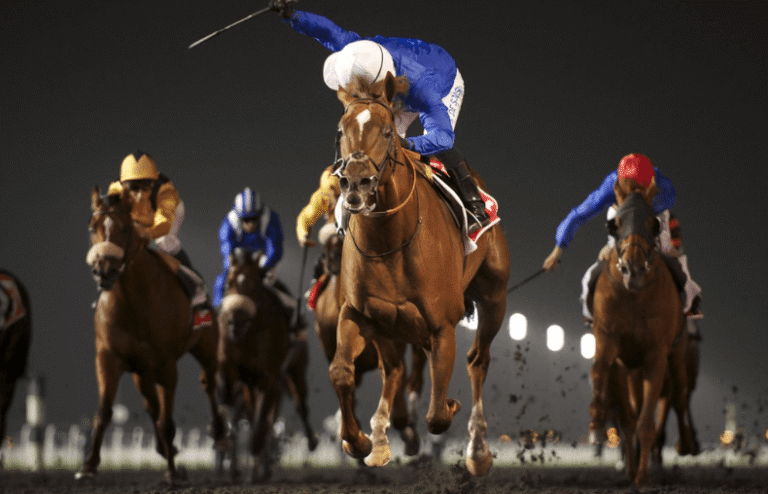A great racehorse is defined by a blend of physical attributes, temperament, and genetic factors. Strong conformation and an efficient stride are essential for speed and agility. However, the horse’s temperament can significantly influence its performance under pressure. Additionally, bloodlines often determine inherent traits that contribute to a horse’s potential. Understanding these elements is crucial for anyone involved in the racing industry. What further insights can be gleaned about nurturing these remarkable athletes?
Physical Attributes of a Champion Racehorse
The anatomy of a champion racehorse is a fascinating blend of genetics and training that contributes significantly to its performance on the track.
Conformation analysis reveals the ideal body structure, enhancing balance and power. Key attributes include a long stride length, which promotes efficiency and speed.
Together, these physical traits create a formidable athlete, capable of achieving remarkable feats in competitive racing.
The Importance of Temperament
Temperament plays a crucial role in determining a racehorse’s success on the track, influencing not only its performance but also its trainability and overall demeanor.
A thorough temperament assessment reveals traits such as stress resilience, which can significantly affect how a horse responds to competition and training environments.
Understanding these behavioral characteristics is essential for trainers aiming to cultivate a champion racehorse.
See also: What Makes a Great Jockey?
Training Regimens That Foster Success
Successful racehorse training regimens hinge on a careful blend of physical conditioning, mental stimulation, and tailored nutrition.
Effective training techniques incorporate varied conditioning strategies, allowing horses to build endurance and strength.
Additionally, engaging mental exercises foster a competitive spirit, essential for success on the track.
Together, these elements create a holistic approach that nurtures both the body and mind of the athlete.
Bloodlines and Genetic Factors
Bloodlines and genetic factors play a pivotal role in determining a racehorse’s potential on the track.
Analyzing a horse’s genetic heritage through pedigree analysis reveals inherited traits that influence speed, stamina, and temperament.
Successful racehorses often descend from distinguished lineages, showcasing the importance of breeding in producing champions.
Understanding these factors empowers breeders and owners to make informed decisions for future racing prospects.
Conclusion
In conclusion, the essence of a great racehorse can be likened to a finely tuned machine, where every component—from physical attributes to temperament—works harmoniously towards peak performance. By understanding the intricate balance of these traits, trainers and owners can cultivate champions that not only excel on the racetrack but also embody the spirit of resilience and dedication. Investing in a comprehensive approach to training and care is vital in transforming potential into undeniable success.
